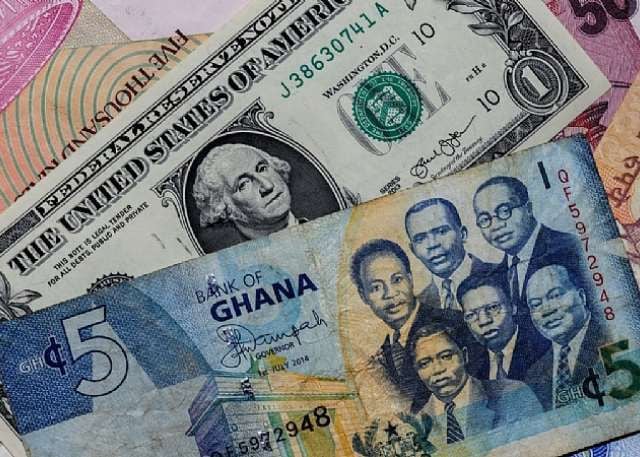The Ghanaian cedi faced persistent depreciation against major international currencies, particularly the US dollar, on Friday, September 12, 2025, reflecting ongoing economic challenges. Across various exchange platforms, the cedi’s value fluctuated, highlighting the dynamic nature of the foreign exchange market. Data aggregated from Cedirates.com, a respected source for currency and fuel pricing in Ghana, reveals a widening gap between the buying and selling rates of the cedi against the dollar, suggesting increased volatility and potential speculative activity. This depreciation trend underlines the vulnerability of the Ghanaian economy to external pressures, potentially affecting import costs and inflation.
A closer examination of the exchange rates reveals a tiered system within the market. At forex bureaus, accessible to the general public, the cedi traded at a significantly weaker rate against the dollar compared to the interbank market rate offered by the Bank of Ghana. This disparity suggests a higher demand for dollars in the retail market, possibly driven by individuals and businesses seeking to protect their assets against further cedi depreciation. The spread between the buying and selling rates at forex bureaus also points to profitability within the currency exchange sector, reflecting the inherent risks associated with trading a volatile currency like the cedi. The Bank of Ghana’s interbank rates, typically accessible to larger institutions, offer a more favorable exchange rate, reflecting the central bank’s efforts to stabilize the currency and manage the overall exchange rate environment.
The cedi’s weakness extended beyond the dollar, impacting its exchange rate against other major currencies like the British pound and the euro. Similar to the dollar exchange, the cedi faced depreciation against both currencies, with notable differences between the forex bureau rates and the Bank of Ghana’s interbank rate. The pound and the euro, both influential currencies in international trade and finance, experienced higher exchange rates against the depreciating cedi. This trend emphasizes the broader vulnerability of the Ghanaian currency and the potential for increased costs for imports denominated in these currencies, further impacting the domestic economy.
Remittance services, a vital source of foreign currency inflow for Ghana, provided slightly more competitive exchange rates compared to forex bureaus. Platforms like LemFi and Afriex, specializing in international money transfers, offered rates for the dollar, pound, and euro that were marginally stronger than the forex bureau rates but still weaker than the Bank of Ghana interbank rates. This difference highlights the competitive nature of the remittance market, with these platforms seeking to attract customers by offering relatively favorable rates for those sending money to Ghana. Remittances play a crucial role in supporting household incomes and contribute significantly to the Ghanaian economy, making the exchange rate offered by these platforms a key factor for both senders and recipients.
Digital subscription payments for popular international services like Netflix, Spotify, and Apple Music, processed through Visa and Mastercard, utilized a fixed exchange rate against the cedi. This fixed rate, though higher than the interbank rate, provides a degree of predictability for consumers of these services. The use of a fixed rate shields subscribers from the daily fluctuations of the forex market, ensuring a consistent cost for their digital subscriptions. This approach simplifies budgeting for consumers while also guaranteeing revenue stability for the service providers in cedi terms, despite the currency’s volatility.
In essence, the Ghanaian cedi’s performance on September 12, 2025, painted a picture of continued currency depreciation against major international currencies. This depreciation was evident across various exchange platforms, with forex bureaus offering less favorable rates compared to the Bank of Ghana’s interbank market. The widening spread between buying and selling rates at forex bureaus further indicated market volatility and potential speculation. The cedi’s weakness against the dollar, pound, and euro underscores the vulnerability of the Ghanaian economy to external pressures. Remittance platforms offered slightly more competitive rates, reflecting the importance of this sector in the Ghanaian economy. Finally, the fixed exchange rate applied to digital subscriptions via international payment processors provides price stability for consumers while ensuring stable revenue streams for service providers despite the cedi’s volatility. The cedi’s continued depreciation necessitates close monitoring and potentially further intervention to mitigate its negative impact on the Ghanaian economy.


